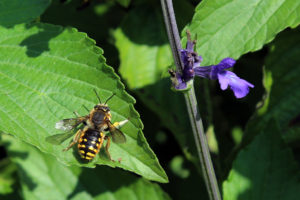Today I was investigating the topic of a sea mollusc that creates a neon glow to the mouth when eaten. I had researched before so tried to locate via google. I arrived at the following site: https://en.m.wikipedia.org/wiki/Nudibranch, and came to this excerpt:
In 1884, Philip Henry Gosse reported observations by "Professor Grant" (possibly Robert Edmond Grant) that two species of nudibranchs emit sounds that are audible to humans.
Note from their wiki pages:
- Philip Henry Gosse (6 April 1810 – 23 August 1888)
- Robert Edmond Grant (11 November 1793 – 23 August 1874)
So, they both passed away on August 23rd. Grant’s birthday 11/11 stands out… as does his surname given that it’s an addition to the recent “Remove a letter Makes a Word” pattern cluster— as in “rant”. Following the inner twin lead and applying their communication formula, we arrive at the following person on the August 23 wikipedia page:
- 1999 – James White, Irish author (b. 1928)
- James White (7 April 1928 – 23 August 1999)
- 2000 – Claire Trevor, American actress (b. 1910)
- 2002 – María Félix, Mexican actress (b. 1914)
- Claire Trevor (née Wemlinger; March 8, 1910[1] – April 8, 2000)
- María de los Ángeles Félix Güereña (8 April 1914 – 8 April 2002)
Perhaps we need to investigate notable births on April 8th? Using the formulae we arrive at:
- 1999 – CeeDee Lamb, American football player
- Cedarian DeLeon "CeeDee" Lamb (born April 8, 1999)
Is there anything that the average person can do to help native bees? Fortunately, yes!
- Planting a garden with native flowering plants gives the native bees the pollen and nectar they need.
- Be sure to plant a variety of flowers with various flowering times so bees will have food throughout the growing season.
- Plant flowers in clumps rather than singly. This makes it easier for the bees to find and encourages them to stay longer.
- Allow lawns to grow longer and allow the clover to bloom.
- Native bees also need a place overwinter to lay their eggs. Leave some wild spaces. At the end of the growing season, leave the stalks and stems of spent flowers to remain.
- There are bee houses that you can make or purchase to give the bees a place to lay their eggs and overwinter.
- Don’t use chemical pesticides.
- Avoid buying plants and seeds which contain neonicotinoids.
Hopefully, as people become aware of the value of these pollinators, steps will be taken to protect them from the threats they are now facing. The honey bee cannot pollinate many north American varieties, as compared to the native bee. Blueberries need native bee’s to pollinate.
https://tylerarboretum.org/north-american-native-bees-the-real-unsung-hero/
In New Brunswick, both social and solitary bees are present.
Native bees often have adaptations to make them effective and efficient at foraging, and thus pollinating, wild blueberries. Bumble bees (Figure 1), for example, have large bodies to move pollen from flower to flower, and are well-adapted to cooler temperatures associated with the early pollination season of wild blueberries. Bumble bees are also able to buzz pollinate or perform ‘sonication’- this involves shaking the flowers, which is an advantage to release pollen in blueberry’s poricidal anthers.
Fall 2019 Agriculture, Aquaculture and Fisheries
Fig. 1. A bumble bee visits wild blueberry flowers- note the enormous pollen loads on her back legs.

No comments:
Post a Comment